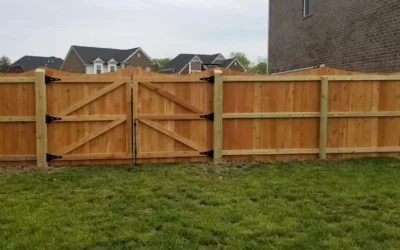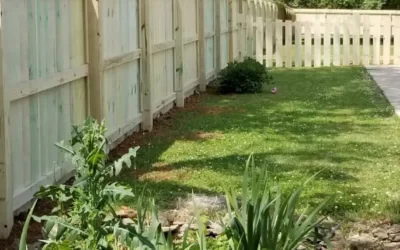Agricultural fences tend to take up a lot of time, effort and money when it comes to the initial installation. For this reason, you need to invest in the right type of agricultural fence that will meet your particular needs. In this blog article, we will cover some of the different aspects of your farm that you need to consider when it comes to choosing an agricultural fence that works for you.
Assess Your Fencing NeedsBefore we dive into the different agricultural fence types that are available, let’s talk about some of the things you need to assess with your fencing situation. Here are a few things to consider before you choose your fence:
Budget – you may need to choose your fence materials based on your budgeted finances for this project. For example, choosing between wood and vinyl will make a big difference in the final cost.
Safety – you will need to consider the safety aspects of a fence to keep your livestock safe. There are particular fences that are designed for specific livestock. Think about your safety priorities and how they will translate into fencing needs.
Space – we all know Tennessee is known for its wide open spaces! If you have a lot of ground to cover with your fence, there are different fencing options to consider. You may also want to think about different types of fences for smaller spaces too. For example, wood is a great option for smaller pastures.
Aesthetics – if you are going for a specific look to match the rest of your farm, it’s important to keep these design features in mind as you look through the different fencing options.
Agricultural Fences To ConsiderNow that we covered some of the assessments that you need to make about your particular fencing situation, let’s take a look at some agricultural fences to consider.
Vinyl fencing – this is amongst the most durable fencing materials out there. Most notably, it requires very minimal maintenance. We have also found that horses are less likely to get injured when it comes to vinyl fencing.
High tensile woven wire and poly-coated wire fencing – if you have a lot of ground to cover on a limited budget, this is probably your best option.
Barbed wire fencing – this is your best option to keep your livestock secure within your property at all times.
Wood fencing – wood fences tend to work best for smaller pastures and riding arenas. Wood fences are very strong, but its lifespan is not as long as vinyl.
Always Keep Your Specific Needs In MindRemember this: every farm functions in different ways. You may need more barbed wire fence if you have a large amount of livestock. Or on the flip side, you may not need barbed wire fence at all if you are looking to create a riding arena. If you keep your specific needs in mind, you will come away with the right fence for you.
If you need some more help figuring out what fencing option is best for your farm, our team is here to help. We have been helping farms across Tennessee since 2002. Contact us today at Grizzly Fence and we will make sure that you come away with the right agricultural fence for your farm!
How to prevent 5 types of fence damage
Grizzly Fence is your Nashville leader in Fence Installation! Rotting A quality fence will...



